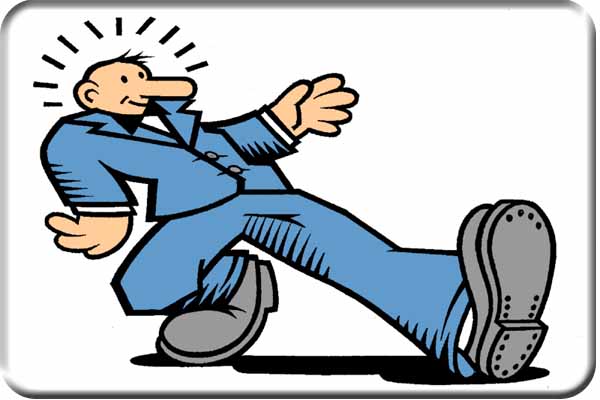
Being peripatetic (or philosophically ambulatory) is, for my money, a conditio sine qua non for courting wisdom. Moving your body properly is both cause and effect of moving your mind properly. Consider the latter first. If we wish to philosophize well, we will try to move our minds in ways that are appropriate for reflecting the reality around us, and that means, certainly, not to think too slowly, but also – and perhaps even more importantly – not to think too fast. Speed and wisdom do not mix well.
I suspect that most philosophers who end up in confusion and skepticism suffer from one of two fatal handicaps: 1) failure to grow morally in lockstep with their growth in knowledge, for goodness and truth are radically co-dependent, and increase in one demands concomitant increase in the other. But here I am thinking more of the other hindrance, namely: 2) failure to welcome the contemplative mode of thought into one’s ponderings, with a resulting hypertrophy of ratiocination and a fading of intellection, an overdrive of linear and logical trajectory with little or no intuition, a glorying in being mercurially smart, all the while the big picture is vanishing from your cognitive horizon.
This is most evident in the relationship between looking and seeing. The reason we look for something is in order to see it. And when we see it, and because we see it, we become aware of even more to look for. That is what wonder is all about. But it is sight that first sends us looking, and it is sight which is the end towards which we look – it is both origin and aim. Somewhere quite early on in modern philosophy we lost sight of this distinction (pun intended), and started just looking, observing, squinting, peering, analyzing, scrutinizing, and rarely finding a spare moment to consider, speculate, contemplate and gaze. One way to remedy this cross-eyed dilemma is to turn to the body in which we think. Our body is our soul manifest. Aquinas said – contrary to our common assumption – that the body is in the soul more than the soul is in the body. And what we do corporeally is going to impact our thinking mightily.
Thus we need a mode of movement that brings our whole psychosomatic complex into some sort of harmony, and serves to match (and to provoke) the sort of measured thinking that we ought to value. Tai Chi may be the ultimate tool for this, but I’m afraid not everyone is cut out for Chinese fine-tuning. At the other extreme, neither would I encourage aspiring philosophers to run off to gyms full of machines and sweating bodies, with personal trainers and health meters ready to drill and measure you. In fact, maybe we should not be running much at all. Computers run – those paragons of speed and power – so let them run. Athletes (read: young people) run – and more power to them. The rest of us, however, should walk. It has been said that the French, despite their love of butter and cheese, avoid obesity more efficiently than Americans simply because they walk a lot, rather than sitting for hours in automobiles (something Chesterton called “sloth in motion”).
Walking is perfectly proportioned movement. One can think, listen, converse if accompanied, stop and notice things, and let the sky above and the earth below talk to us. Our language already gets the message: You have a walk of life; you walk with Jesus; “let me walk you through that,” you “walk the walk,” etc. – all admirable endeavors. However, you “run up” a debt; “it’s running late”; if your digestion is loose, you get the runs; you run for political office (that most non-contemplative of careers); you run from dangers, you run to emergencies; you run a racket – I think I’ve made my point.
Walking disposes you to think with measure, to contemplate and to take in the world with leisure. I walk about five or so kilometers most days. This makes the hours I sit at my desk – or stand when speaking in lectures or homilies – less statuesque and more relaxed. And since walking is actually enjoyable, I don’t look for excuses not to do it (as I certainly would if it were a matter of jogging or going off to ‘work out’). But the ultimate secret is this: walking makes you wise. When I walk, I can actually feel some wisdom growing.


